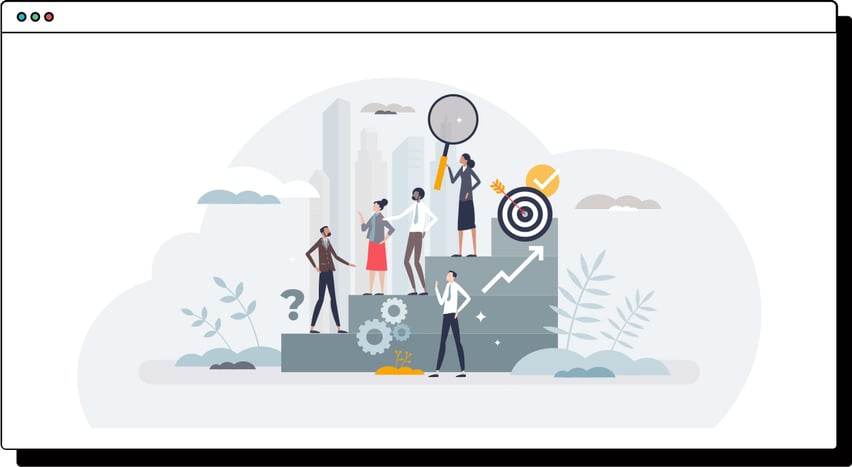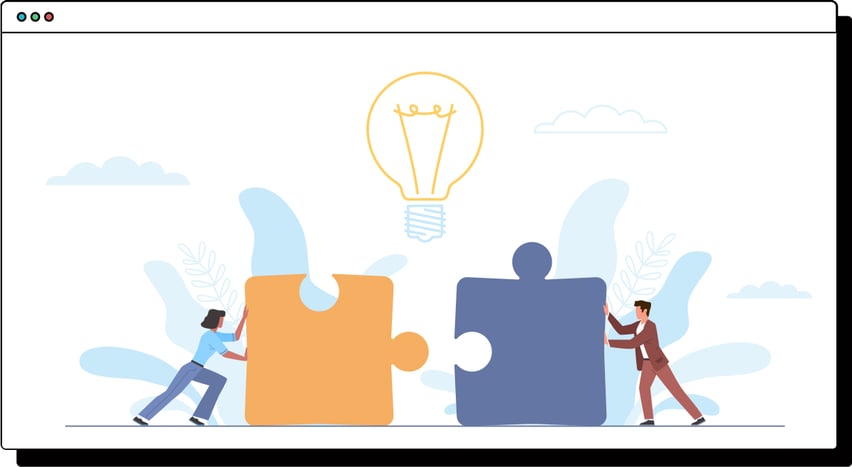In the rapidly evolving world of business technology, Customer Relationship Management (CRM) systems have become indispensable tools for managing interactions with customers, streamlining operations, and driving sales growth. In the past few years, HubSpot has emerged as a leader in the CRM space. As businesses strive to implement an effective HubSpot CRM strategy, they often encounter a critical decision: choosing between Objectives-Based Onboarding (OBO) and CRM Implementation to get going on their digital transformation journey.
This blog aims to demystify these two approaches, providing clear insights into their functionalities, advantages, and ideal application scenarios. Whether you're a small business owner, a mid-size company executive, or an IT professional in a large corporation, understanding the nuances of OBO and CRM Implementation is crucial for leveraging the full potential of HubSpot’s CRM in your business environment.
Let's delve into these strategies to discern which one might be the right fit for your business needs.
Understanding OBO
Objectives-Based Onboarding (OBO) is a strategic approach to CRM implementation that starts by identifying and prioritising the specific goals a business aims to achieve through its CRM system. This method is fundamentally rooted in understanding a company's unique objectives, some examples being: improving customer engagement, increasing sales, enhancing marketing efforts, or streamlining internal processes.
In OBO, the CRM is configured and tailored from the get-go to align directly with these identified objectives. This approach ensures that every feature and tool within the CRM is relevant and contributes meaningfully towards achieving the set goals. One of the key benefits of OBO is its focus on delivering immediate value. By concentrating on essential functionalities that directly address the company's needs, OBO facilitates a quicker and more efficient deployment, making it particularly appealing for businesses looking to see rapid results from their CRM investment.
OBO does however come with certain limitations. Its focus on immediate objectives might overlook the potential for long-term scalability or the integration of advanced features that could be beneficial in the future. This could mean that while OBO provides a swift solution to current needs, it might require additional adjustments or enhancements as the business grows and evolves.
Another point to remember is that OBO’s success relies heavily on the accurate identification of business objectives from the start. If these objectives are not clearly defined or if they change over time, the CRM system might not deliver the expected outcomes, requiring further revisions and investments.

Exploring CRM Implementation
CRM Implementation takes a broader and more comprehensive approach than OBO, focusing on the intricate integration of the CRM system into various facets of a business. This method is not just about aligning the CRM with current objectives but also about embedding it deeply into the company's operational, sales, and marketing ecosystems. It often involves complex customisations, integrations with other systems, and leveraging advanced features of the CRM platform.
The strength of CRM Implementation lies in its holistic view. It's designed to not only address immediate business needs but also to anticipate future requirements. This approach is particularly beneficial for larger organisations or those with multifaceted processes and teams, where the CRM needs to function seamlessly across different departments and geographies.
This sophistication is not without its challenges. CRM Implementation can be time-consuming and resource intensive. It requires extensive planning, a deeper understanding of the CRM capabilities, and often a higher initial investment. The complexity of the implementation process also demands significant involvement from various departments within the organisation, which can be a challenge in terms of coordination and resource allocation.

Comparative Analysis
When deciding between Objectives-Based Onboarding (OBO) and CRM Implementation, it's crucial to understand how they stack up against each other.
OBO is like a surgical strike – precise, focused, and outcome-oriented. It's streamlined to align directly with specific business goals, making it ideal for companies that have a clear vision of their immediate CRM needs. Its simplicity and directness offer quick deployment and value realisation. However, OBO might fall short in scalability and adaptability for future growth. It's best suited for smaller to medium-sized businesses or those with well-defined, immediate CRM objectives.
CRM Implementation, on the other hand, is akin to a comprehensive battle plan. It's expansive, integrating deeply with various business operations, and is designed for the long haul. This approach is ideal for larger organisations or those with complex, multi-faceted needs that require extensive customisations and integrations. It's forward-thinking, ensuring the CRM system grows with the business. However, this complexity requires more resources, time, and investment, and it can be overwhelming for businesses that don't need such extensive systems.
In essence, the choice hinges on the scale, complexity, and future vision of your business. For straightforward, goal-specific needs, OBO is effective and efficient. For complex, evolving, and large-scale requirements, CRM Implementation is more suitable, offering a robust and scalable solution.
If you are seeking more personalised advice or insights into CRM strategies best suited for your business, don't hesitate to reach out to us. Let's work together to find the perfect CRM solution that aligns with your business goals and drives your success forward.
